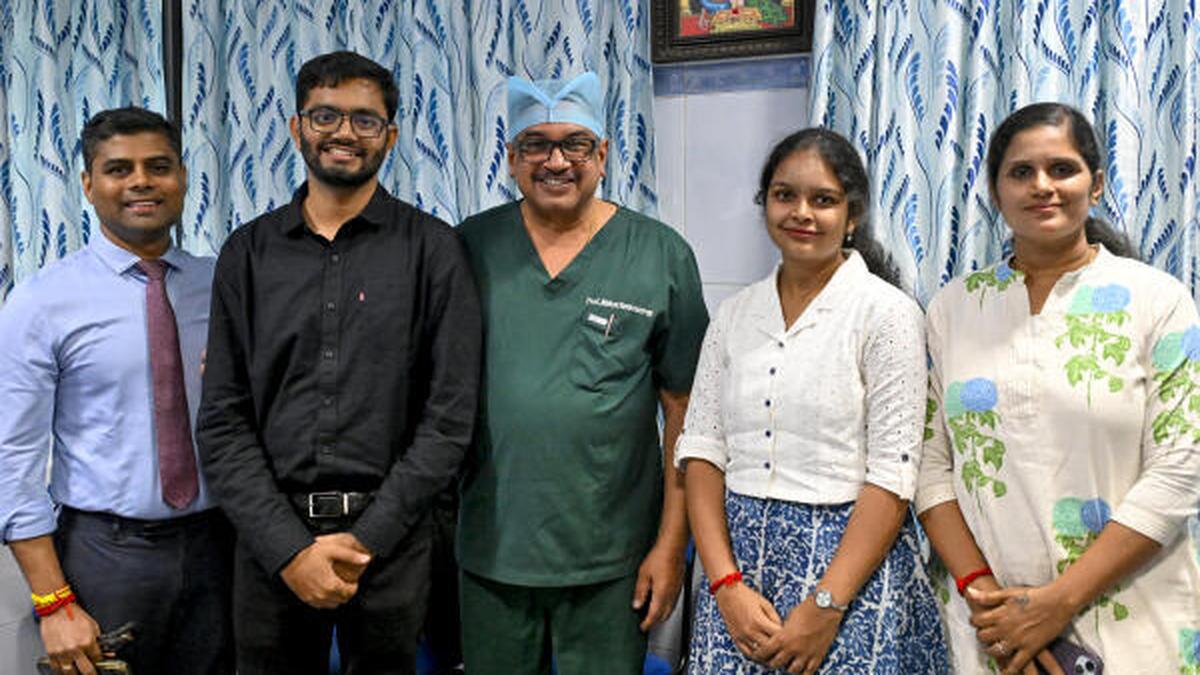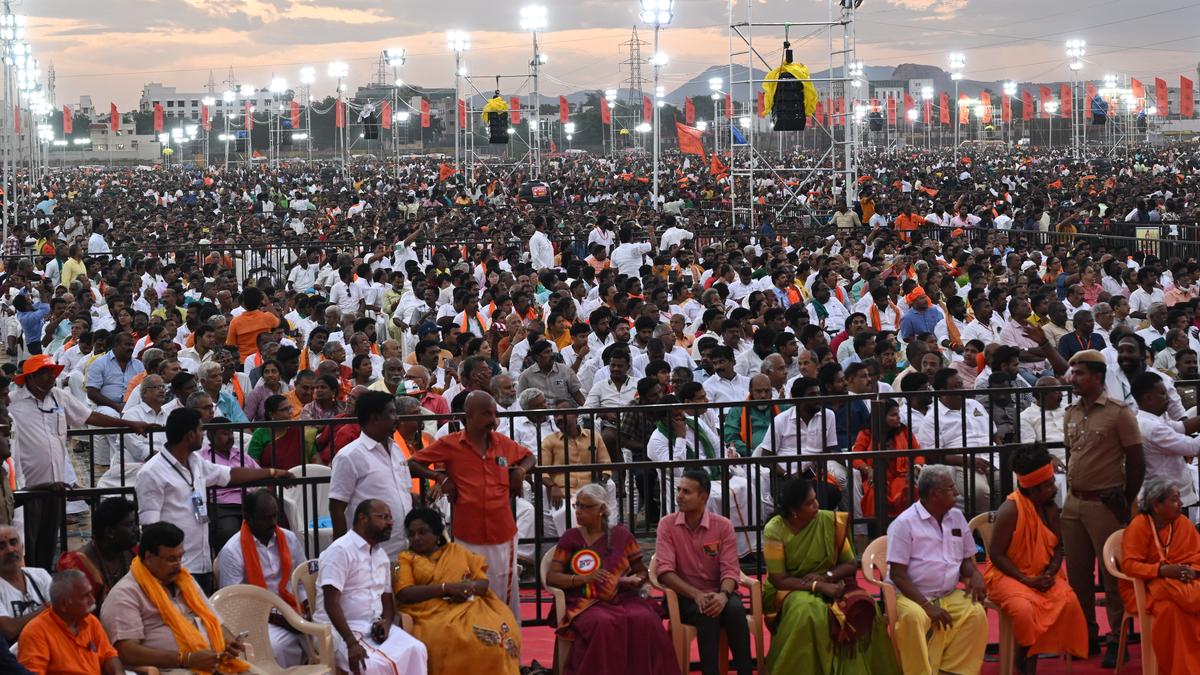
Mohan Kameswaran, managing director and chief surgeon, Madras ENT Research Foundation, with Cochlear implantees Yash Kumar (second from left) and Akshaya (second from right).
| Photo Credit: Akhila Easwaran
“It is the greatest reward to see them like this,” remarked Mohan Kameswaran, managing director and chief surgeon, Madras ENT Research Foundation (MERF) as his face lit up with joy on meeting two young persons, who had received cochlear implants at MERF at a very young age, came back years later with a big news. One of them has cracked the Union Public Service Commission (UPSC) exam and the other has secured an admission to a medical college.
Yash Kumar, who has cleared UPSC and has been selected for the Indian Administrative Service, underwent cochlear implantation in 2002 as a three-and-a-half-year-old. A Computer Science Engineering graduate from the Indian Institute of Technology, Kanpur, he worked in Microsoft for one-and-a-half years and then decided to take up the civil services.
“I wanted to make an impact with people who are in need. I look forward to working for the under-represented and marginalised sections as well as with children and for their education. I will definitely have a special eye for persons with disabilities,” said Mr. Yash, who is visiting Chennai after 15 years.
He was diagnosed with hearing impairment when he was almost two years old at AIIMS, Delhi, which came as a shock to his parents. They moved to Chennai, where he joined a special school. “While I had hearing aids and made progress, though the speech was not up to the level, my father wanted something better for me, and heard of cochlear implantation. Despite many advising us against getting a cochlear implant, my father went ahead. I received the implant in 2002, and after a year of speech therapy, I started speaking by the age of 5,” he recalled.
For 18-year-old K.S. Akshaya, securing a medical seat has taken her closer to her childhood dream of becoming a doctor. Born with profound hearing loss, she was diagnosed at the age of two, and underwent cochlear implantation in 2009. “Then, it was a struggle to pay for the surgery. We met a number of persons who could not afford such treatments, and kept thinking that we should help people in whatever way we can. We told Akshaya that she should do whatever she can, and medicine is one field that can help her do so. Without the cochlear implant, she would not have been able to communicate, study and dream the way she does today,” her mother R. Sujathaa said.
Ms. Akshaya looks ahead to joining MBBS in Madurai Medical College. Despite having the choice of selecting colleges in and around Chennai, she decided to opt for Madurai as she wanted to be independent. “I want to become an ENT surgeon, and work with Dr. Mohan Kameswaran and perform cochlear implant surgeries under his supervision,” she said.
Dr. Kameswaran added that early surgery and proper rehabilitation made a lot of difference as was the case with Ms. Akshaya and Mr. Yash. Ranjith Rajeswaran, director and chief audiologist, MERF Institute of Speech and Hearing, said that both of them had undergone cochlear implantation at a very young age. “This makes acquisition of speech and language much faster, and is a big advantage,” he said.
“What India lacks is a universal neonatal hearing screening. Screening should be done on the day of birth or the next day. World-wide, it is recommended that babies diagnosed with hearing loss should receive a cochlear implant by nine months of age,” Dr. Kameswaran said. He mentioned that a pilot project for neonatal hearing screening was in progress in Thoothukudi district.
Published – August 13, 2025 05:00 am IST



